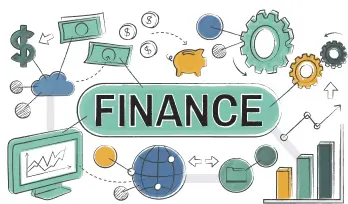Entry Requirements by Country
United States (US)
Requirements
Strong academic record in high school, standardized tests (SAT/ACT) with competitive scores (varies by university), essays, and sometimes interviews.
Focus Courses
Math (including Calculus), Economics (AP Economics a plus), strong performance in core subjects (English, Science, Social Studies).
Canada
Requirements
High school diploma with strong grades in core subjects (English, Math, Science) and potentially an emphasis on Economics or Business courses.
Focus Courses:
Strong performance in Mathematics is crucial. Some universities may require additional standardized tests.
United Kingdom (UK)
Requirements
Good grades in secondary school leaving exams (A-Levels, IB Diploma), with a strong focus on Mathematics and Economics.
Focus Courses
A-Level in Mathematics (often further math preferred) and A-Level in Economics highly recommended. Other relevant subjects include Business Studies and Accounting.
Additional Information:
Some universities might accept alternative qualifications or conduct their own entrance exams.
Australia
Requirements
Completion of Australian Year 12 (high school) with strong results, particularly in Mathematics and relevant social sciences.
Focus Courses:
Mathematics and subjects like Economics or Business Studies are highly recommended.
United States (US)
Requirements
Strong academic record in high school, standardized tests (SAT/ACT) with competitive scores (varies by university), essays, and sometimes interviews.
Focus Courses
Math (including Calculus), Economics (AP Economics a plus), strong performance in core subjects (English, Science, Social Studies).
Canada
Requirements
High school diploma with strong grades in core subjects (English, Math, Science) and potentially an emphasis on Economics or Business courses.
Focus Courses:
Strong performance in Mathematics is crucial. Some universities may require additional standardized tests.
United Kingdom (UK)
Requirements
Good grades in secondary school leaving exams (A-Levels, IB Diploma), with a strong focus on Mathematics and Economics.
Focus Courses
A-Level in Mathematics (often further math preferred) and A-Level in Economics highly recommended. Other relevant subjects include Business Studies and Accounting.
Additional Information:
Some universities might accept alternative qualifications or conduct their own entrance exams.
Australia
Requirements
Completion of Australian Year 12 (high school) with strong results, particularly in Mathematics and relevant social sciences.
Focus Courses:
Mathematics and subjects like Economics or Business Studies are highly recommended.















